Professors Self-Assembled in Solidarity Resistance (PAReS)*
In the second part of this two-part interview, renowned journalist and activist Naomi Klein speaks with PAReS about the struggles for multiple sovereignties, the importance of weaving historical struggles with current movements, and the role of diasporas in supporting these movements. Read the first part of the interview here,

Sovereignty: people’s power rooted in caring for each other and the earth. Image: deeticaypolitica.wordpress.com
PAReS: Recently you went to Barcelona, where there is a strong political struggle over national sovereignty, often presented in terms of “what is more important”, national independence or an anti-capitalist struggle. Based on your experiences in different territories where these debates exist, what is your take on this?
Naomi: I don’t think that Catalunya has a colonial relationship with Spain. Quebec is itself a colonial formation that stole land from indigenous people. So one of the issues where there are strong sovereignty movements is the ways in which they can erase the complexities around internal hierarchies within those would-be sovereign states, where elites can pass themselves off as the oppressed and erase their own acts of oppression. This is not a commentary on whether they should be sovereign or not. But, one of the problems of longstanding independence movements is that they service an endless deferral of internal dynamics, and about other ways in which sovereignty is threatened.
I have a lot of respect for Ada Colau [mayor of Barcelona] because of the role she has played in navigating this complex dynamic within her party [Barcelona en Comú], where there are sovereigntists and non-sovereigntists. She is trying to have a discussion about the many ways in which sovereignty is threatened –water and housing sovereignty, etc.– and that having national sovereignty will not necessarily solve any of these other issues. I think we need to be able to have a discussion about the forms of sovereignty that need to be asserted. This is a question that cannot be deferred until after the national sovereignty is achieved, but that is often what the sovereignty discourse does. At this stage in global economic integration when you have newly-liberated small economic players , they are often under strong pressure to make pro-corporate deals. In Greenland, for instance, you have indigenous sovereignty movements that are finally achieving victories, but they are so economically vulnerable that the only way they see to gain economic freedom is drilling for oil under their melting ice. So if these issues aren’t dealt with, then what does sovereignty mean for an artic people whose economic survival depends on them been complicit in their cultural annihilation?
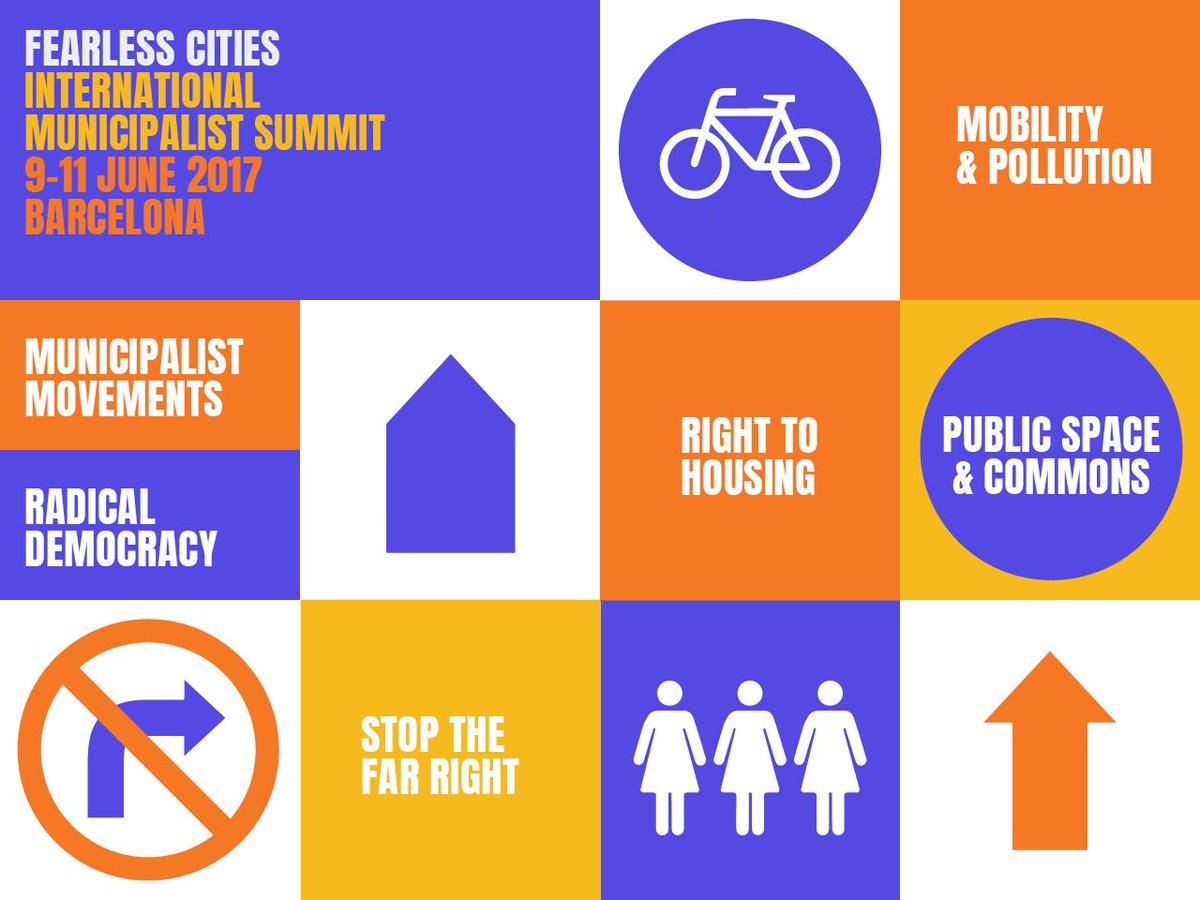
Some of the different issues related to sovereignty that Barcelona en Comú has been advocating for. Source: https://twitter.com/bcnencomu/status/860188518139789313
Many people have talked about [hurricane] Maria as this unveiling and I think one of the things unveiled is the reality of what it means to lack sovereignty in so many aspects of daily life. What food and energy dependence looks like when there is a major rupture to the system, like in Vieques, where there’s the double dependency of importing fossil fuels first to Puerto Rico and then to Vieques. It’s an absolutely insane way to generate energy and food. I think that now, the majority of Puerto Ricans know that because they are living it, but, it needs to be diagnosed properly, so that the governor cannot say “The problem is that we need an outside company to come and do the job for us.”
When I was in Barcelona in November, shortly after the referendum, it was a very intense moment; there had been a lot of violence by the state when people tried to vote, and the whole cabinet had been arrested. Barcelona en Comú responded by broadening the definition of what sovereignty means: to define their political project as being one of multiple sovereignties, that they are building a world where there is water sovereignty, energy sovereignty, food sovereignty, and economic sovereignty –to the extent that any municipality is able to do that in a global economy, exercising to the full extent the power that they have. I think this is probably the most interesting political project in the planet right now.
The most worrying thing about what’s going on in Cataluña is that they are not resolving their political vision before they fight for sovereignty. You have incredible left coalitions with an anarcho-syndicalist vision for an independent Cataluña, and then you have hardcore neoliberals who simply don’t want transfer payments to the rest of Spain. I find that epically dangerous; it’s more realistic to build sovereignty from the ground up, out of a lived experience–in water and energy, food, housing, and building—which then gives you the ability to build a liberatory national sovereignty project. Especially in southern Europe –Greece, Spain, Portugal– where anyone knows what it means to have the full power of international finance strip you of sovereignty.
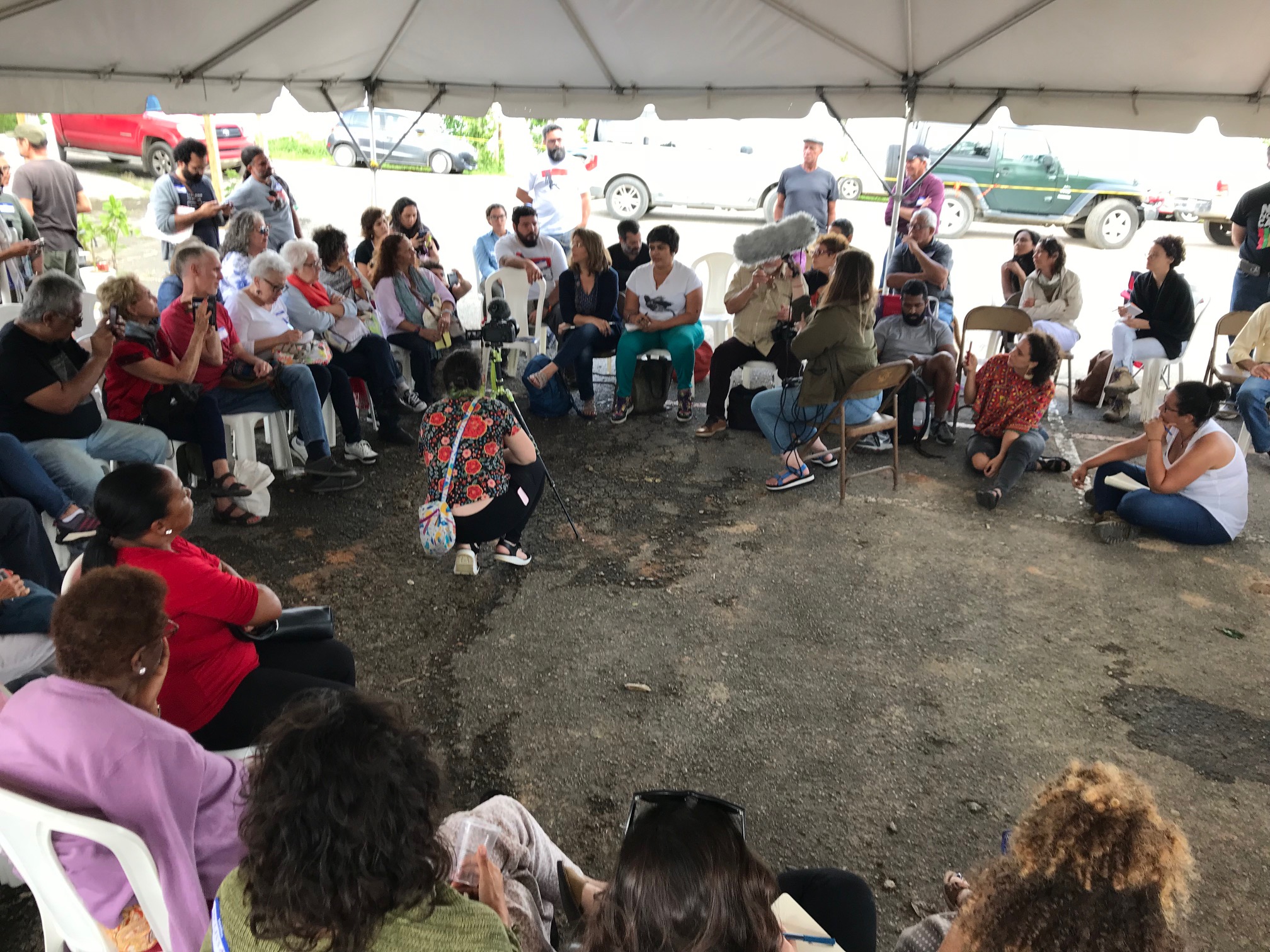
Naomi Klein speaks with movement leaders at the Encounter of Organizations Resisting Disaster Capitalism, organized by PAReS in collaboration with the Climate Justice Alliance and the Proyecto de Apoyo Mutuo of Mariana (Humacao, Puerto Rico, January 27, 2018). Photo: Federico Cintrón Moscoso.
The tittle of No is Not Enough is a dig at Alexis Tsipras [prime minister of Greece]. I was in Greece for the filming of the documentary This Changes Everything, and he asked to have a meeting, but it turned out that all they really wanted was to take a picture. I argued with him that they needed at that moment to propose a route out, not just of the economic crisis, but also the ecological and climate change crisis. He said two things to me. First, he said “We used to care about climate change but we can’t in the middle of an economic crisis. Now we’re focused on that emergency.” To me, that’s exactly the conversation we need to escape from. Of course, the planet will lose the battle if it’s pitted against people’s need for food and jobs. Our job has to be to show a way for us to have a good life and jobs with dignity and /or a basic income, a way of recognizing all of the unpaid labor that improves quality of life and puts food on the table, and creates a habitable planet for all of us. And that it is possible to do it. That is what we are trying to do with The Leap. But Tsipras said to me, “At this moment, no is enough. This is the moment where our job is simply to resist.” And he was right in that he was able to win an election with that. But where he was wrong is that he wasn’t able to govern with that.
PAReS: You have suggested the importance of weaving a diverse net of political histories and actors to be able to create and advance a new political platform. How do you weave that platform without excluding the work that so many people have done before?
Naomi: There’s so much nostalgia for the New Deal era, or the 1970’s era investments in the public sphere that [many activists from that period] don’t recognize all the people that were excluded from this nation building project. That’s not to say that the document (The Leap Manifesto) is like a year 0, starting over. If anything, it’s a deeper history. It begins with acknowledging the original caretakers of the land, water and earth. Some of the language we use echoes some of the treaty negotiations that were part of the founding idea of Canada, and that gave indigenous peoples access to the land, for hunting and fishing and ceremonies for “as long as the sun shines, grass grows, and the rivers flow”. Thus in The Leap we say that we want energy that lasts for “as long as the sun shines, and the rivers flow”.
PAReS: After Hurricane Maria there seems to be an increase in the capacity and interest of the Puerto Rican diaspora in the United States to influence in the processes of emergency response and reconstruction. Do you know other examples of countries where you have seen similar reactions from the diaspora in countries facing the shock doctrine?
Naomi: I don’t think there are many examples of this in a post-disaster context. In the case of Haiti, for instance, there was a “resisting the shock doctrine” dialogue between the diaspora and the island, but in terms of proposing what to do instead, what you are discussing is new territory. I think that the role of real allies in the diaspora is to empower Puerto Ricans, as opposed to people coming wanting to be saviors. I think the more you are able to make plans, people will give you the support you want.
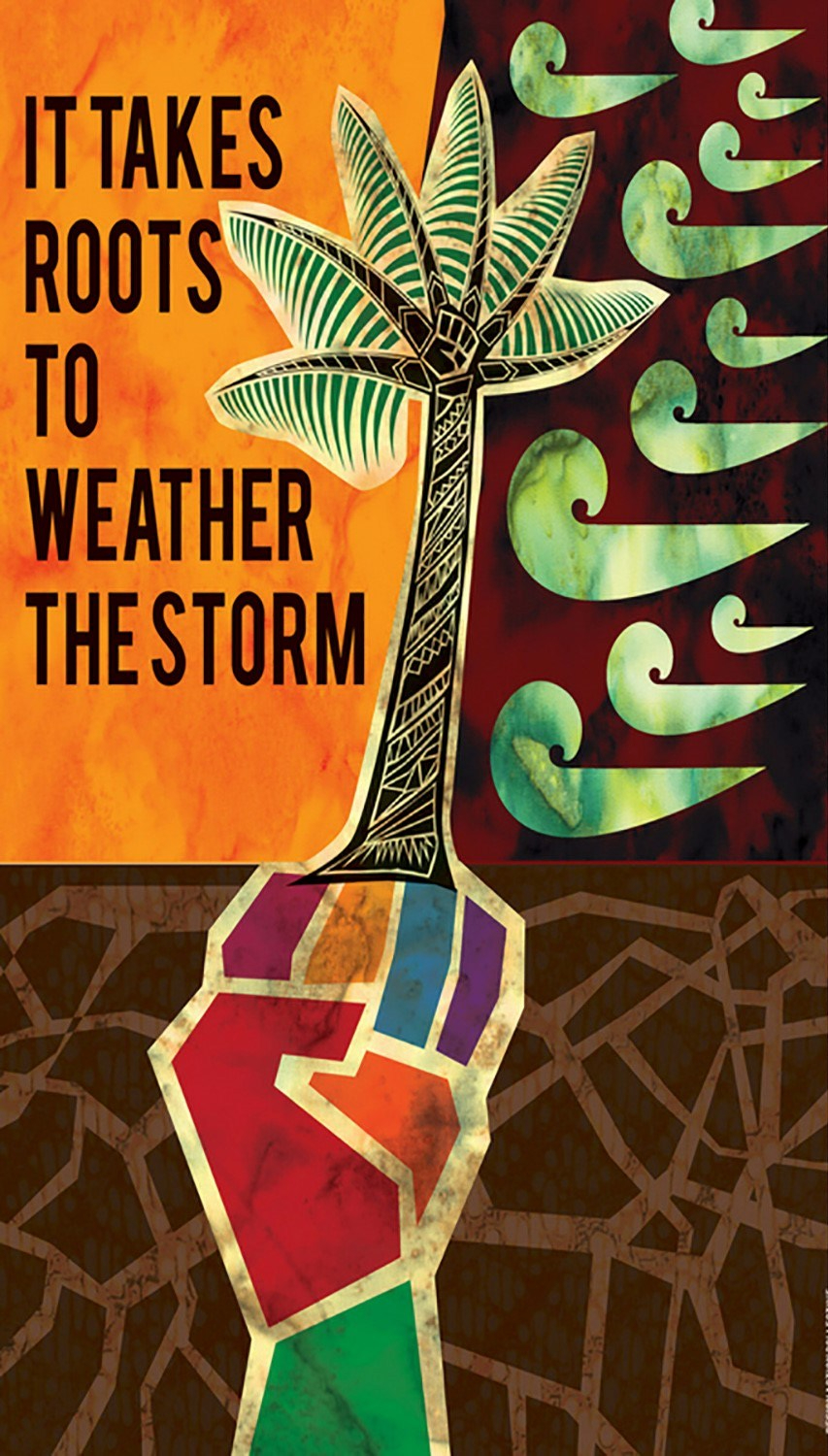
Building people’s power to weather disaster capitalism in Puerto Rico, art of events organized by the diaspora. Source: Our Power Campaign
The other thing I would say is that there needs to be a sequencing. This race against time can feel really scary, they [capitalists] already have their plans, the same plan they want you to have. And you don’t have your plan. Somebody said it earlier, the speed of movements versus the speed of disaster capitalism is completely different, because they don’t give a damn about democracy and it’s autocratic. So, I think that what needs to be thought about here is how to, it’s almost like “save the space” for self-determination, you don’t have to figure out what the whole plan is to say we demand the space. And that preconditions for that space are “you can’t sell all our assets off”, or “we don’t recognize PROMESA” [Puerto Rico Oversight, Management, and Economic Stability Act], whatever it is, and be very clear that you don’t mistake that as the solution or the end goal, it’s the precondition to get to the starting point. I think that articulating that as a right, there is a right to self-determine reconstruction or recovery or transformation, or whatever you want to call it, that’s a right that’s been violated by this fire sale swooping in. That’s different than just saying “don’t privatize PREPA” [Puerto Rico Electric Power Authority]. You are resisting it so you can transform it because it’s your right.
* The interview was carried out by Mariolga Reyes Cruz, Juan Carlos Rivera Ramos, Bernat Tort Ortiz, Federico Cintrón Moscoso, and Gustavo García López, a collective of professors created to defend public education during the 2017 University of Puerto Rico student strike. It was transcribed by Luis López and Damián Irizarry, students at the University of Puerto Rico Graduate School of Planning. The interview took place on January 27, 2018, in the community of Mariana, Humacao, in Puerto Rico’s eastern region, after an encounter of organizations in resistance against disaster capitalism, organized by PAReS in collaboration with the Climate Justice Alliance and the Proyecto de Apoyo Mutuo of Mariana. At The Intercept, you can read Naomi’s powerful investigative essay on Puerto Rico, “The Battle for Paradise”, forthcoming as a book with Haymarket Press, or watch Lauren Feeny‘s excellent documentary.



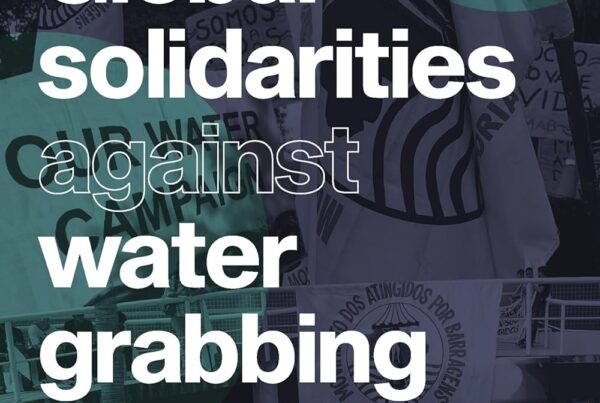
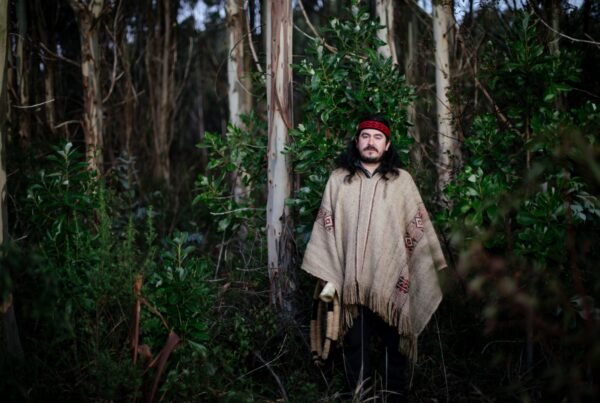
Reblogged this on Political Ecology Network.